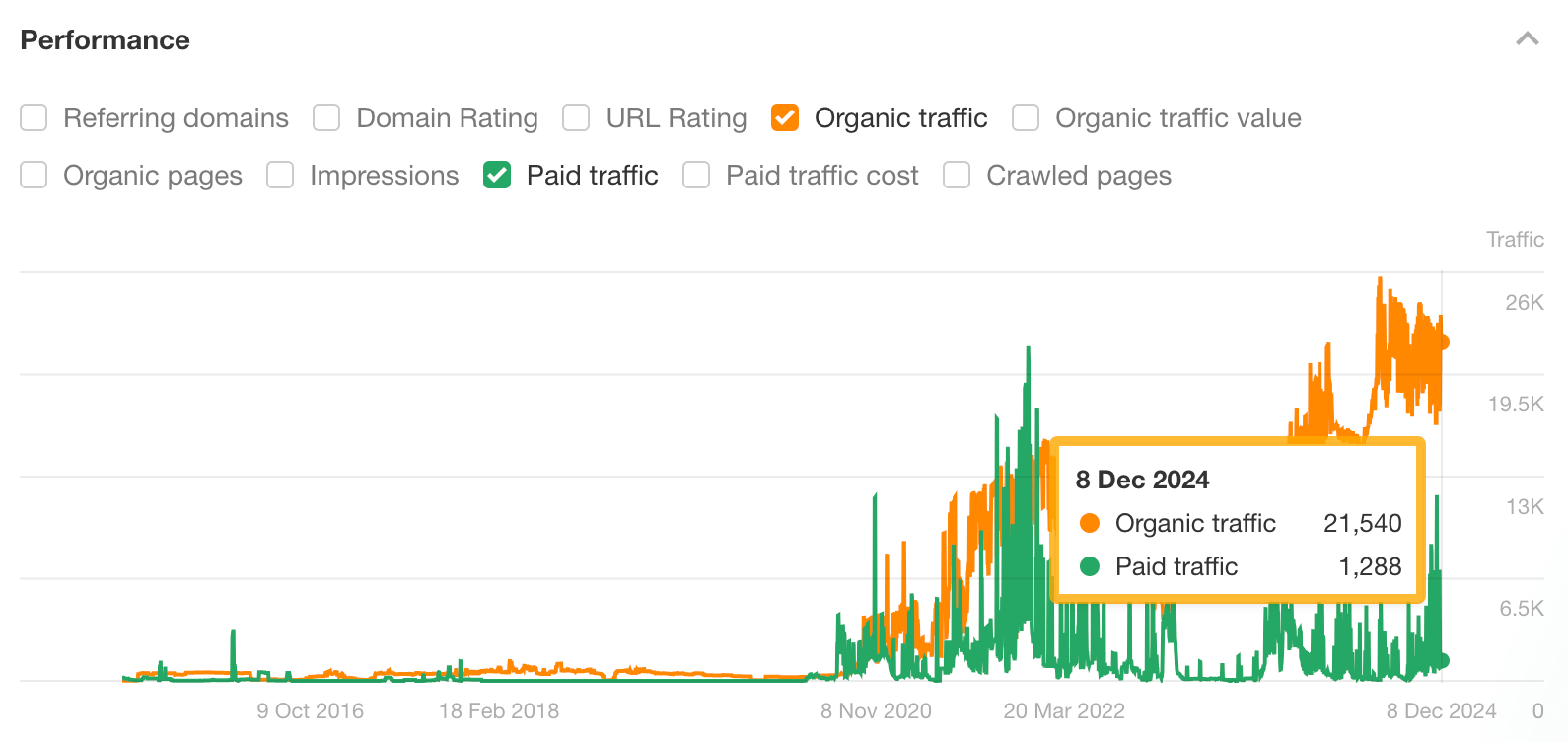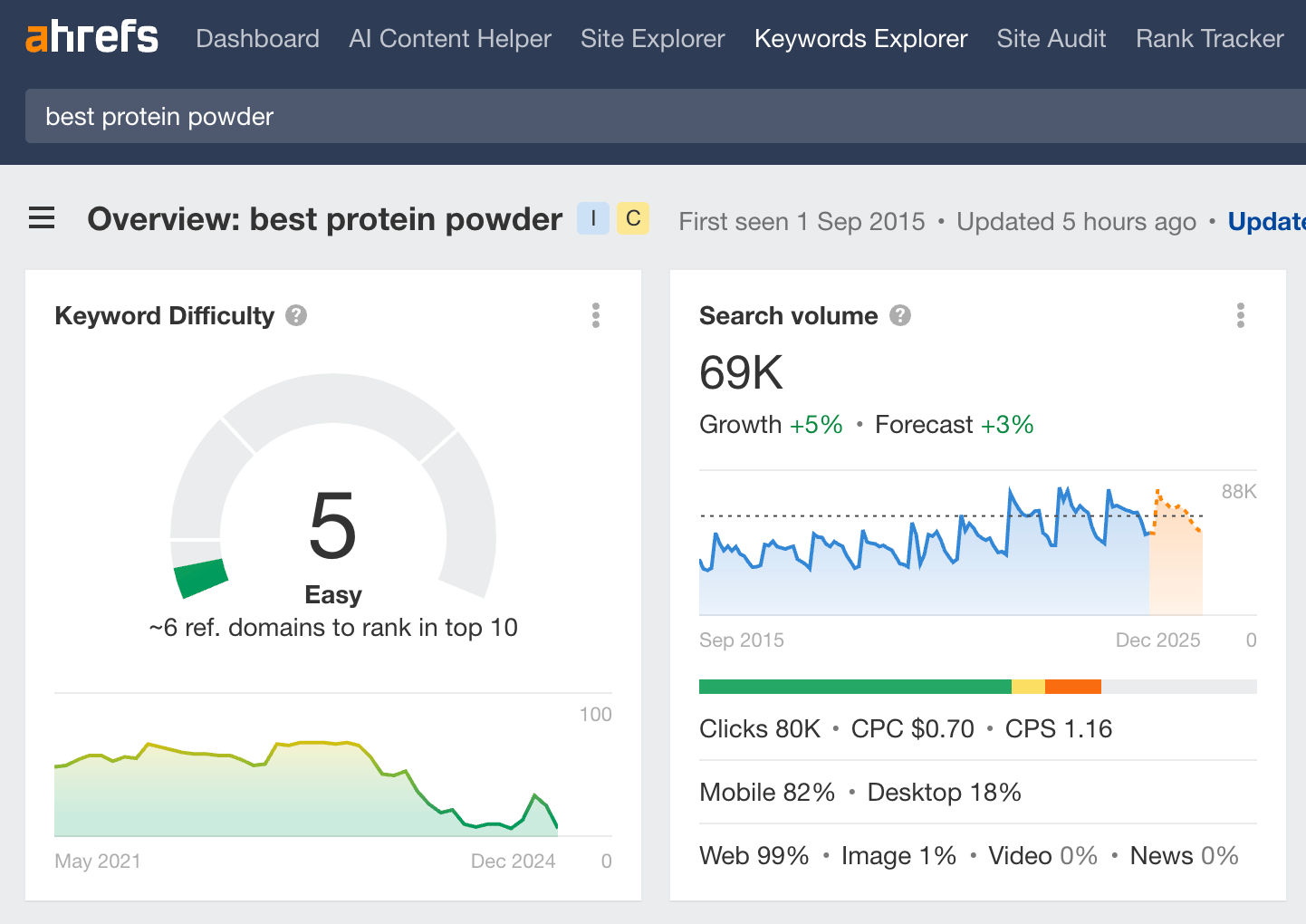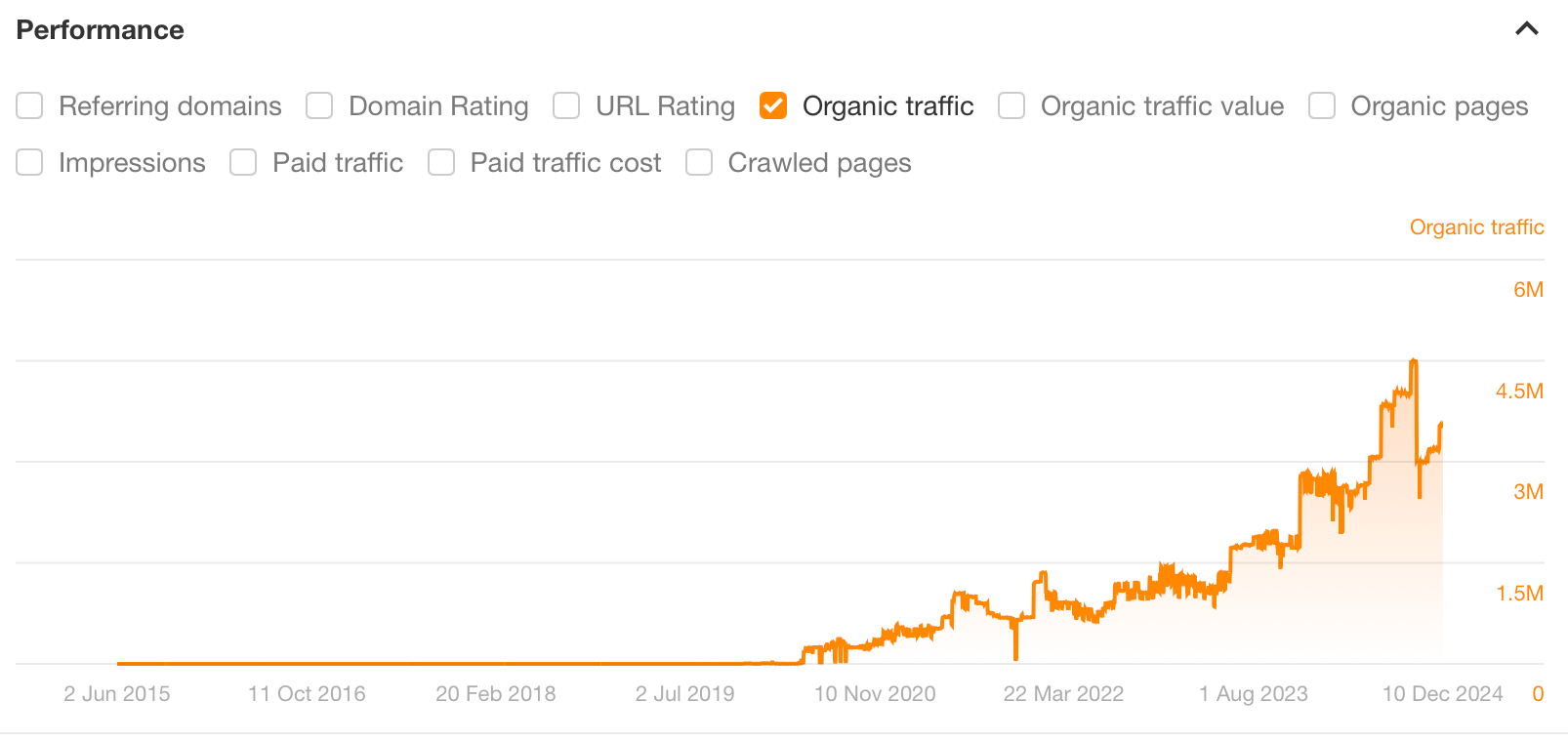
As of 2023, Wix provides solid options for a basic SEO setup that will cover most needs but still lacks the flexibility of more advanced and granular settings.
In this article, I go through all the nooks and crannies of Wix SEO options so you can decide if Wix is right for your needs. I’ll also share some tips on how to make your Wix website more search-friendly if you’re already a Wix user.
Wix SEO issues
While Wix has no major SEO issues, it does have three minor issues that may stop you from wanting to use it if you’re serious about search:
- Website builders will typically load slower than custom code – Wix inevitably has code bloat from features you will never use. This is true even if you use WordPress and install a theme builder like Elementor or Thrive Architect, so this isn’t exclusive to Wix. That said, it’s only a minor issue, and it already has great Core Web Vitals compared to other CMS types.
- Less-than-ideal multilingual support – If you plan on publishing your blog posts in multiple languages, you may want to skip Wix. For example, you don’t have full control over the URLs for different language versions of your site. However, some of these aspects are in its feature requests and may be available soon.
- Limited advanced SEO control – Wix lacks some advanced SEO features. For example, it’s difficult to edit the auto-generated sitemap. Additionally, Wix generates cryptic file names for images (e.g., 09a0ab7~mv2.jpg/), which is not good for ranking on Google Images.
Ultimately, Wix’s SEO features will work for most website owners out there.
If you are a business owner who wants to focus more time on running your business and less time on learning how to build the perfect website with the best features, Wix is an excellent choice.
To help you decide if Wix is right for you, we made this helpful table of who should and shouldn’t use Wix to build their website:
| Type of website | Is Wix a great solution? | Explanation |
|---|---|---|
| Personal website | Yes | Wix provides all you need for small websites. |
| Local business | Yes | Wix provides all you need to create a quick and easy local business website and rank in local search results. |
| Affiliate website | Maybe | Wix can handle your needs for affiliate marketing and SEO well. But if you’re aiming to create a big, complex website, it may be worth your time to learn WordPress instead. |
| Content website | Maybe | Wix can handle your needs for content used to show display ads. But if you’re aiming to create a big, complex website, it may be worth your time to learn WordPress instead. |
| Services website | Maybe | If you offer a service such as SaaS, banking, etc., then Wix may be a good choice depending on the specific features needed. You’ll have to do your own research. |
| E-commerce website | Maybe | There’s no perfect out-of-the-box CMS for this. The most common choices are Shopify or WooCommerce, but Wix is a solid option for e-commerce SMBs too. It can handle even some of the more complex e-commerce SEO stuff. |
I personally would never build a website on Wix over WordPress for myself. That’s because WordPress has more features and customizability. And even though it comes with a much steeper learning curve, that is something I’ve overcome. (I’ve been building WordPress websites for over a decade.)
That said, I built my dad a website for his remodeling business using Wix. I did this because it’s much easier for him to go in and edit things himself than it is with WordPress. And he’s able to rank for local keywords just fine on the Wix platform. The website is fairly new, and I will come back in a few months to update this page with the progress of his rankings.
One last thing to keep in mind is that switching your content management system (CMS) can be a massive pain. So whichever tool you choose, be ready to stick to it for a long time.
Deciding to stick with Wix? Here are five Wix-specific tips to help you make sure your website is search-optimized:
1. Complete the Wix SEO Setup Checklist
Wix has a really easy-to-use SEO Setup Checklist built in its platform. To use it, navigate to the Marketing & SEO page, then click Get Found on Google.
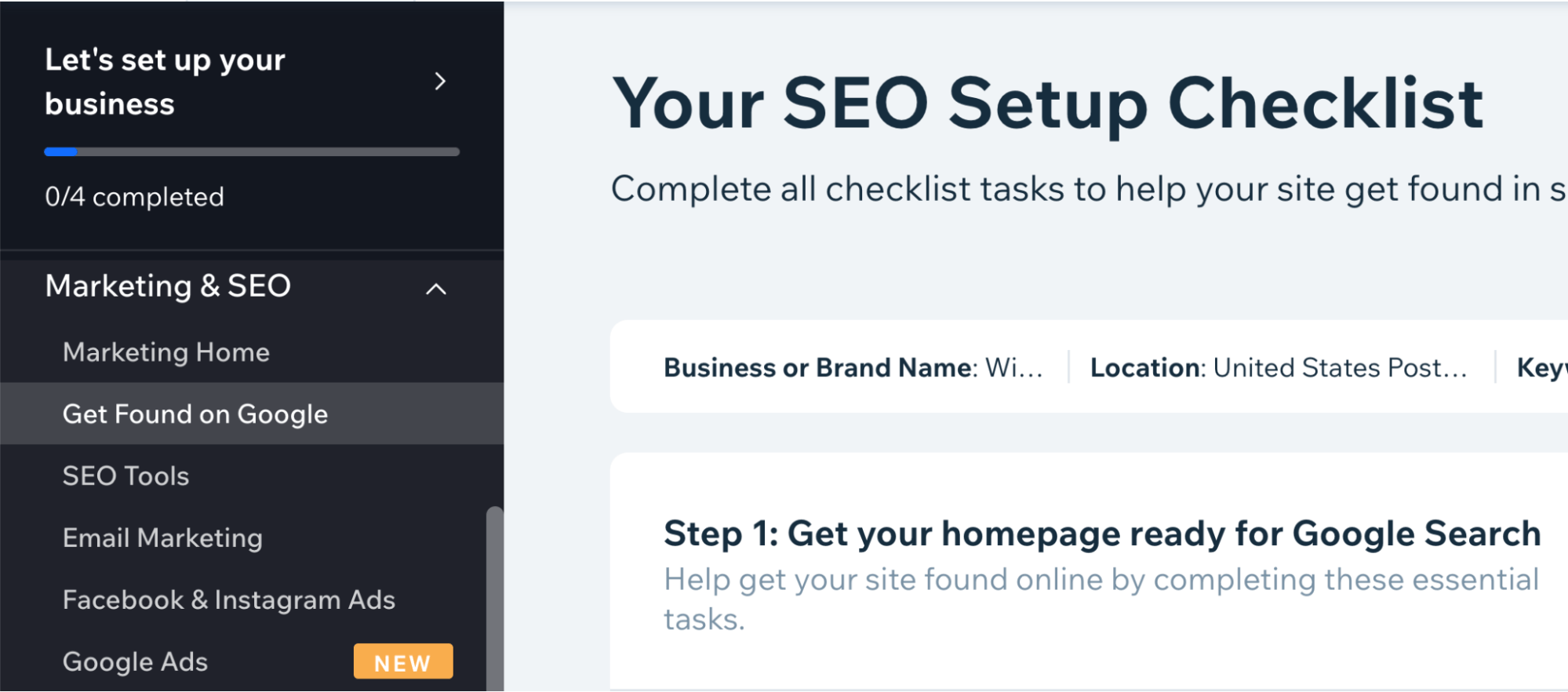
From there, you’ll be asked a few questions to get started, such as your business name and the top three to five keywords you want your website to rank for. If you’re not sure which keywords to target, I highly recommend reading our guide to keyword research.
Once you answer the questions, you’ll see a screen with steps you can take to optimize your website for search engines, starting with your homepage.
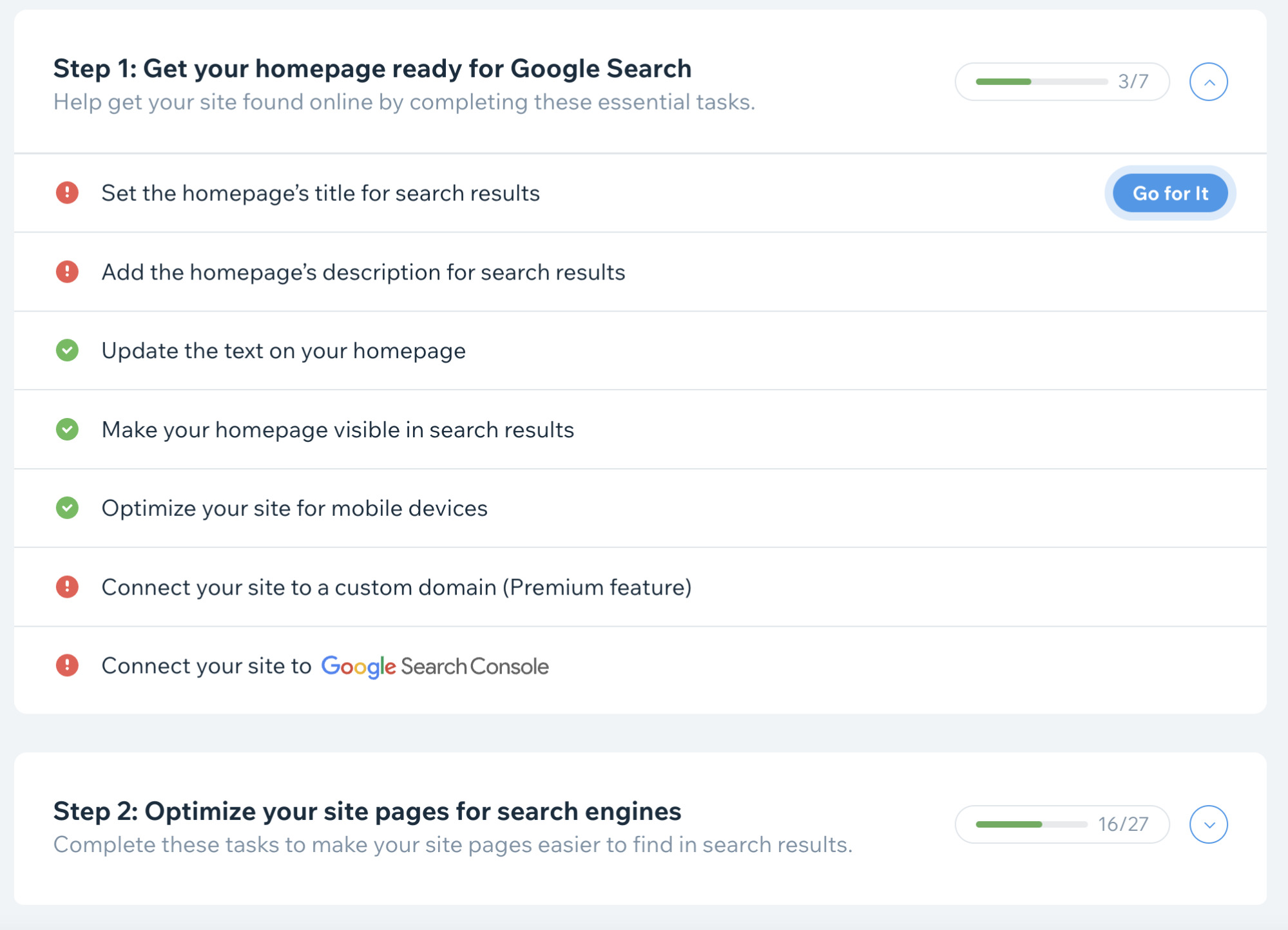
SEO Setup Checklist will guide you through the process of updating your pages’ meta tags, making your website mobile-friendly, and more.
Go through each of these steps, and you’ll be well on your way to a search-optimized website.
2. Set up Google Search Console and Analytics
You’ll notice one of the steps is to connect your site to Google Search Console (GSC). This is Google’s suite of tools designed for website owners like you to more easily monitor your search rankings and find issues preventing your pages from being indexed by Googlebot.
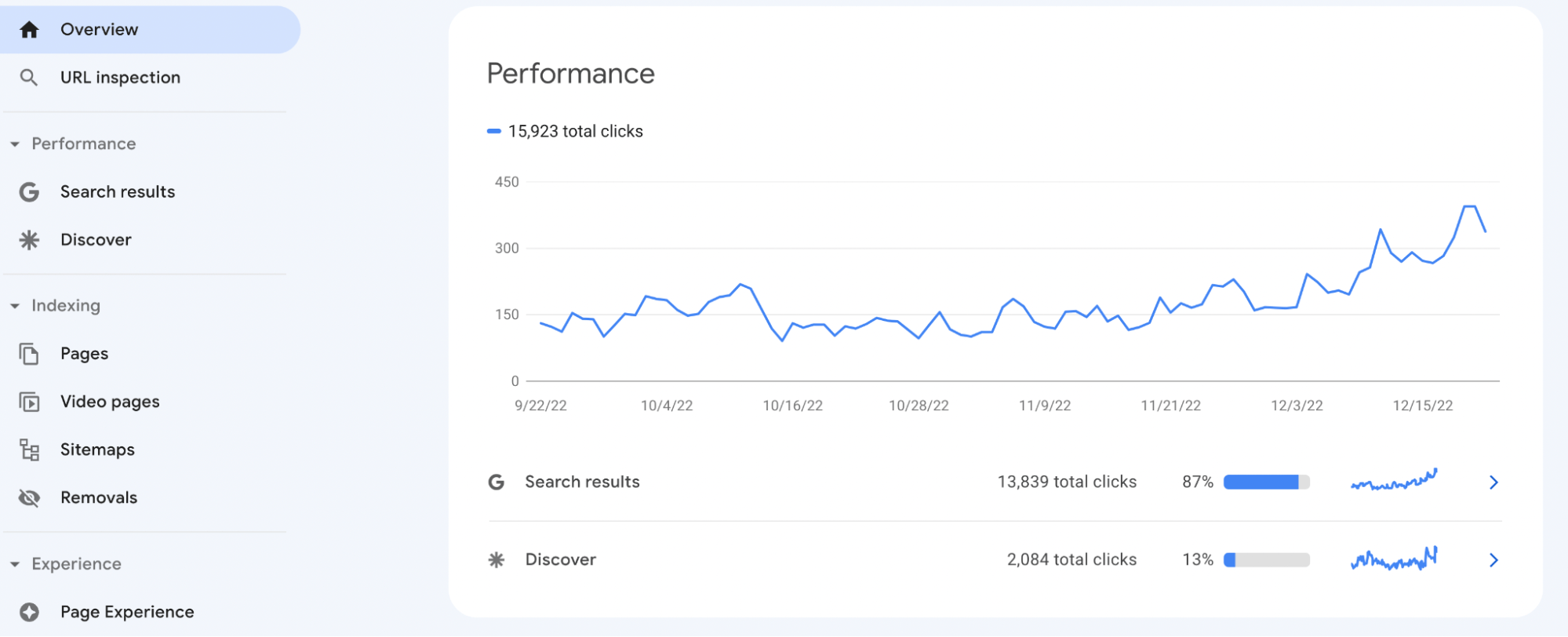
You can set up GSC with the click of a button using the SEO Setup Checklist. If you want to learn more, check out our complete guide to Google Search Console.
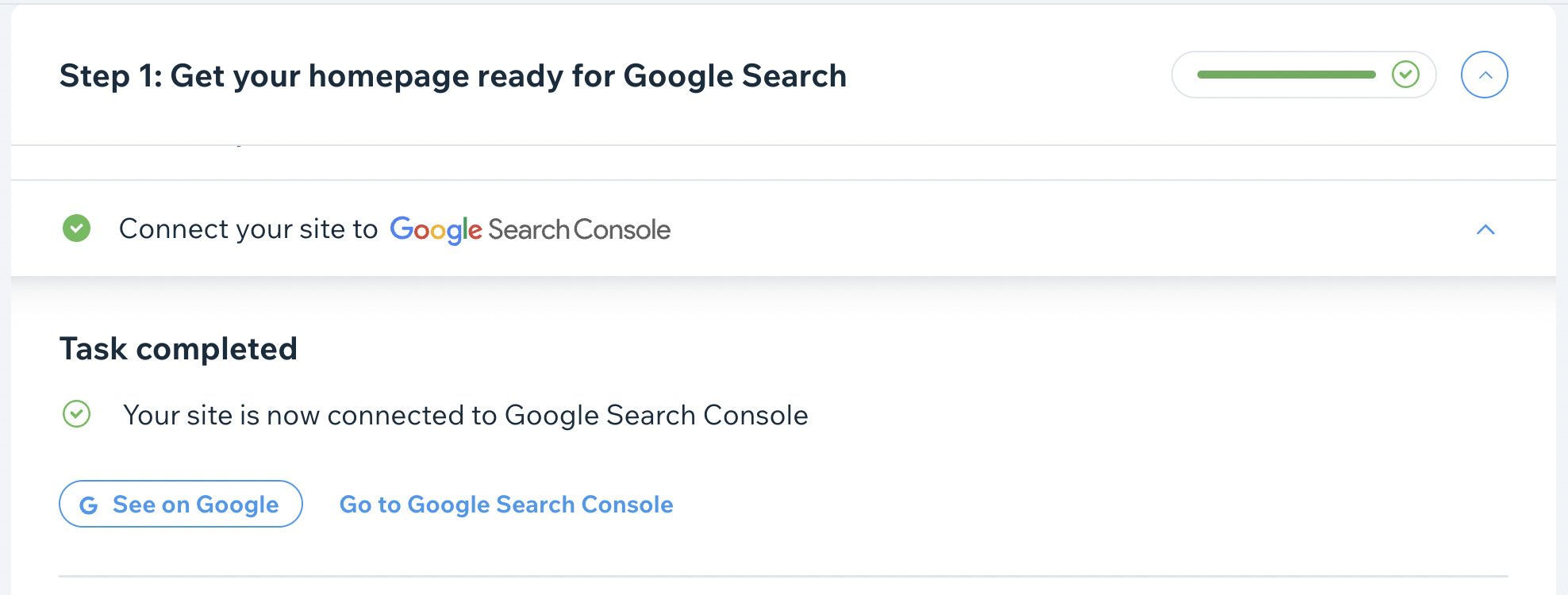
Once GSC is set up, you can connect Google Analytics (GA) to your website to get more insights into where your traffic is coming from and which pages your visitors are going to.
To connect GA, navigate to the Marketing Integrations tab under Marketing & SEO. It’s the first box that appears—click Connect.
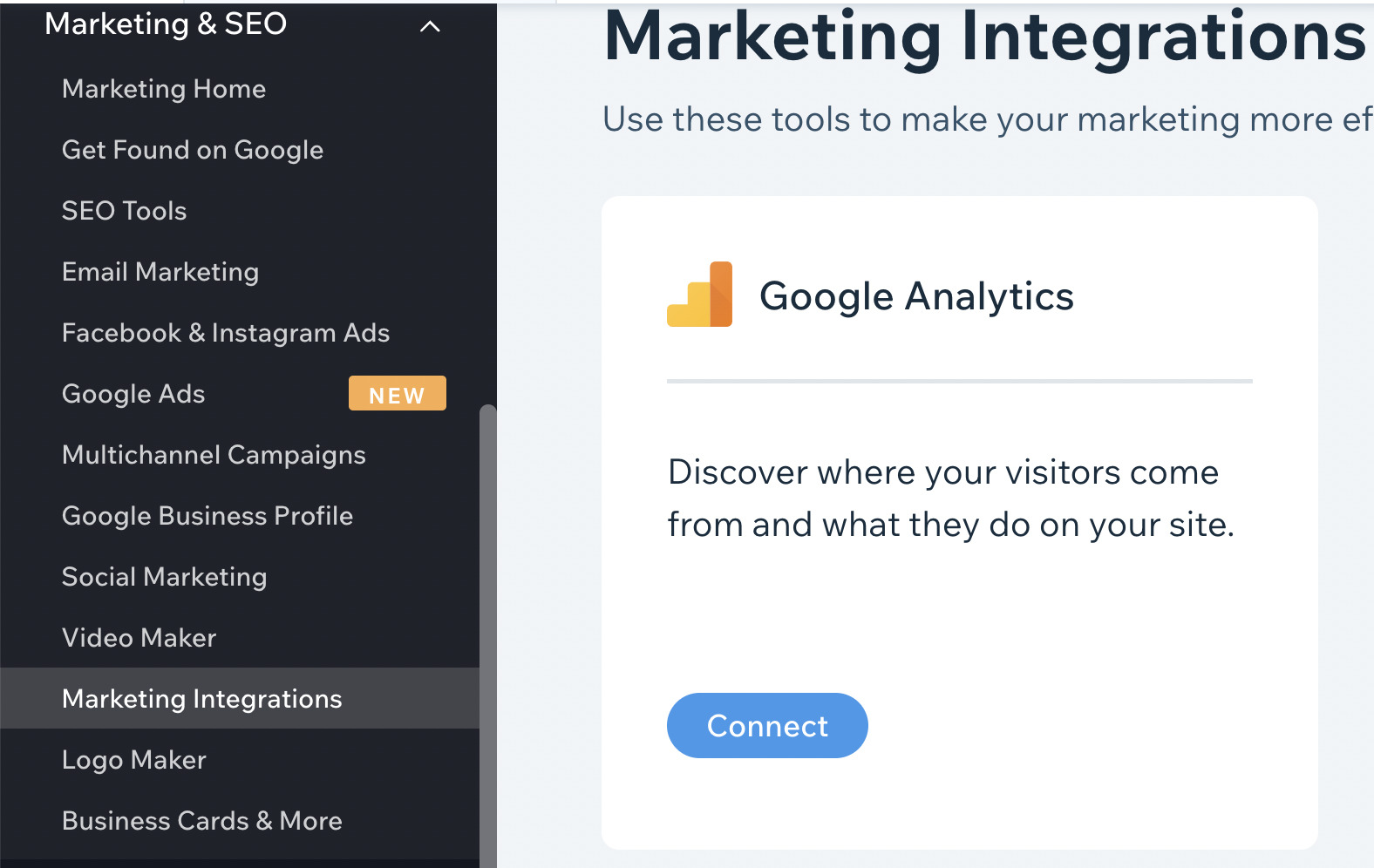
Wix will instruct you on how to create a Google Analytics Property ID and connect that ID with your Wix website. If you need more help, we also have a guide on Google Analytics 4.
Once it’s set up and your website starts getting traffic, you’ll be able to see traffic and webpage reports. This can help you identify which pages may need improvements or how many conversions you get from organic traffic.
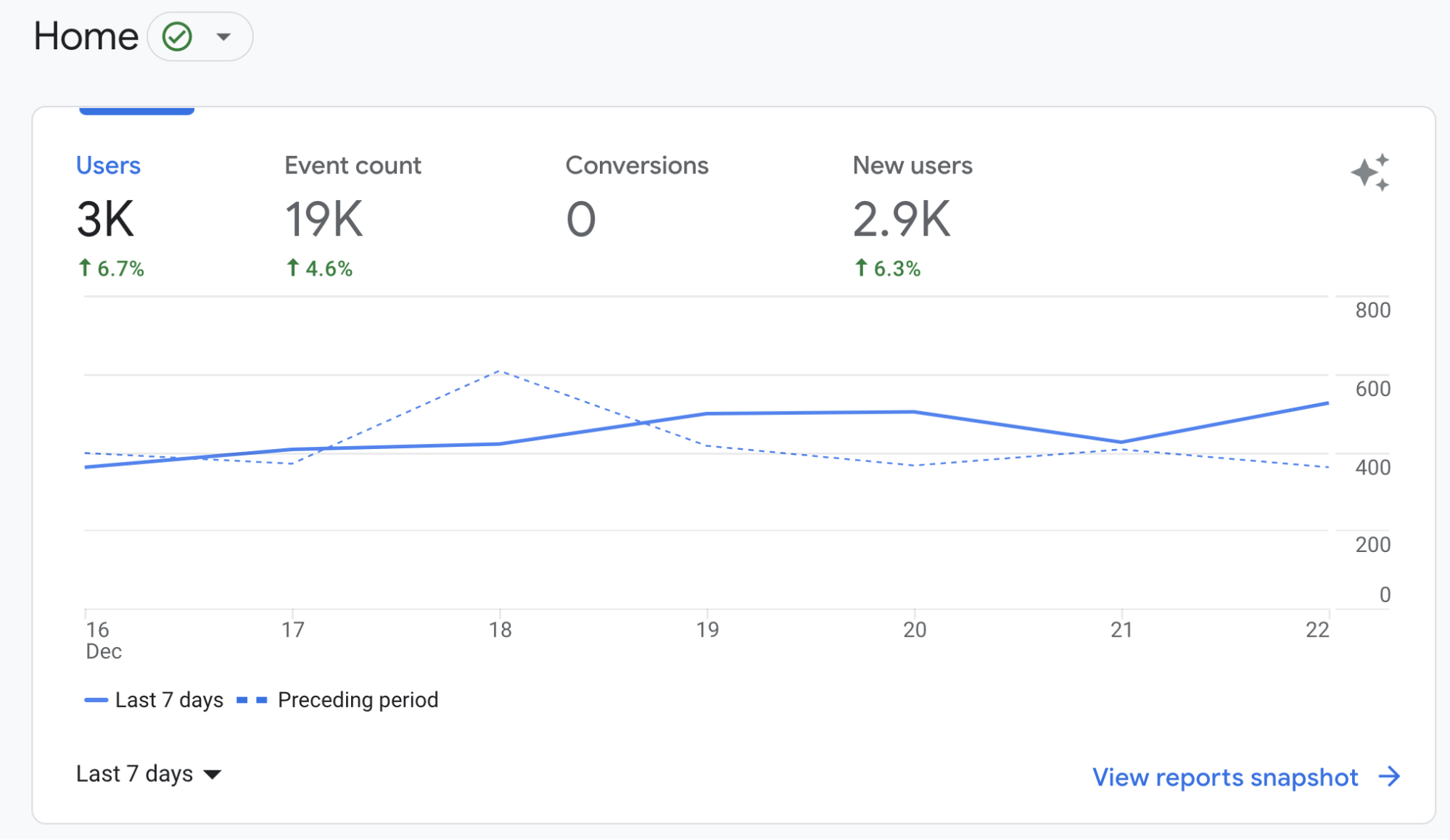
That’s it—you’re done with step #2.
3. Create search-optimized content
If your website just has the basic homepage, as well as “about” and “contact” pages, chances are you won’t be able to rank well for much (if anything).
A crucial step in SEO is creating content that can be crawled and indexed by Googlebot. That means creating service pages if you’re a local business and possibly also creating blog content targeting relevant keywords to your industry.
Rather than making this whole article about content, I will leave you with a resource. Go check out our guide to SEO content to learn more.
4. Add internal links
Backlinks—links from another website pointing to your website—are one of the most important ranking factors in Google’s algorithm. However, they can be difficult to obtain.
Internal links from one page on your site to another on your site are almost as important as backlinks. But they are much easier to add. You just highlight some text and add the link in.
If you have pages on your website that you want to rank better, simply add more internal links to that page and you’re already on the path to higher rankings. Obviously, just adding some internal links won’t suddenly make you rank #1 for a keyword. But it’s an important—and often overlooked—step on the road to better rankings.
To add an internal link with Wix, simply highlight the text you want to add a link to, click the “chain link” icon, then choose the page you want the link to point to.
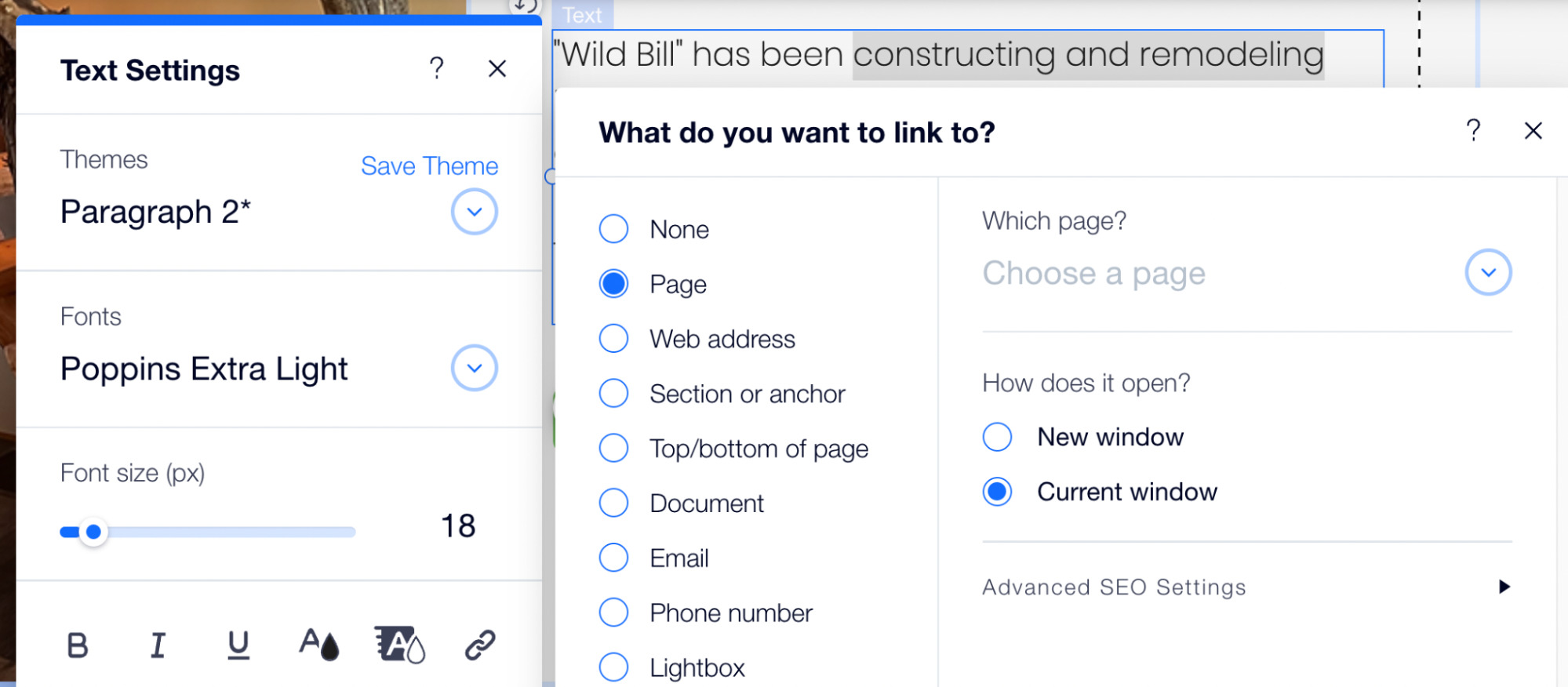
Check out our internal linking guide to learn more about this important SEO task.
5. Schedule regular SEO audits
Once your Wix website is set up and optimized, it’s important to schedule regular SEO audits to keep tabs on your rankings and make sure nothing gets broken.
While you can do this manually, it is time consuming and easy to overlook something.
For example, you may not realize one of your pages broke and is now a 404 page, or that a certain blog post isn’t showing up in your sitemap, or that you’re missing metadata on a certain page… the list goes on.
Instead, you can use Ahrefs Webmaster Tools to automatically run weekly or monthly audits of your website. This free tool will give you a health score from 0 to 100 on how “healthy” your website is from an SEO perspective.
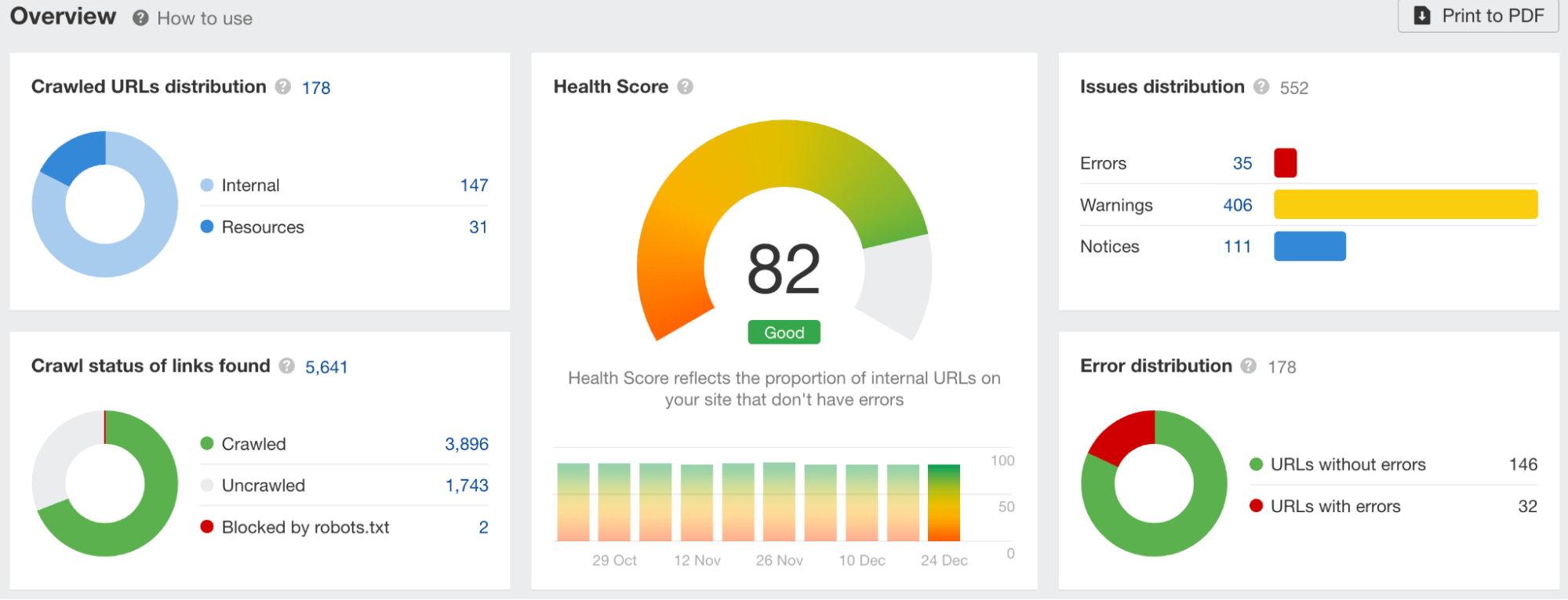
You can then see specific tasks you need to do in order to fix these issues on your site. Go to the All issues report and check the issues we found while crawling your website.
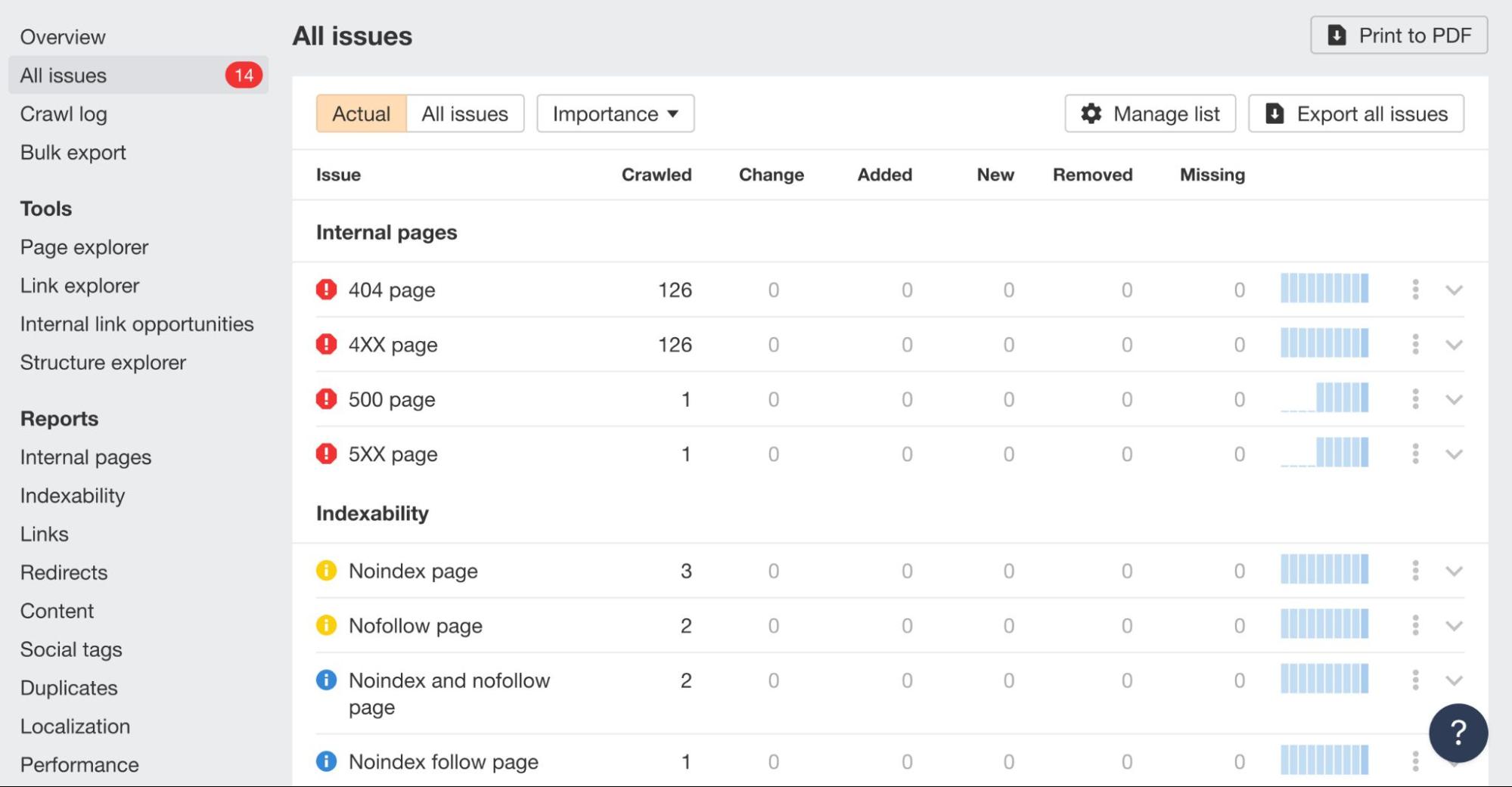
You can click the error and see exactly what it means and how to fix it.
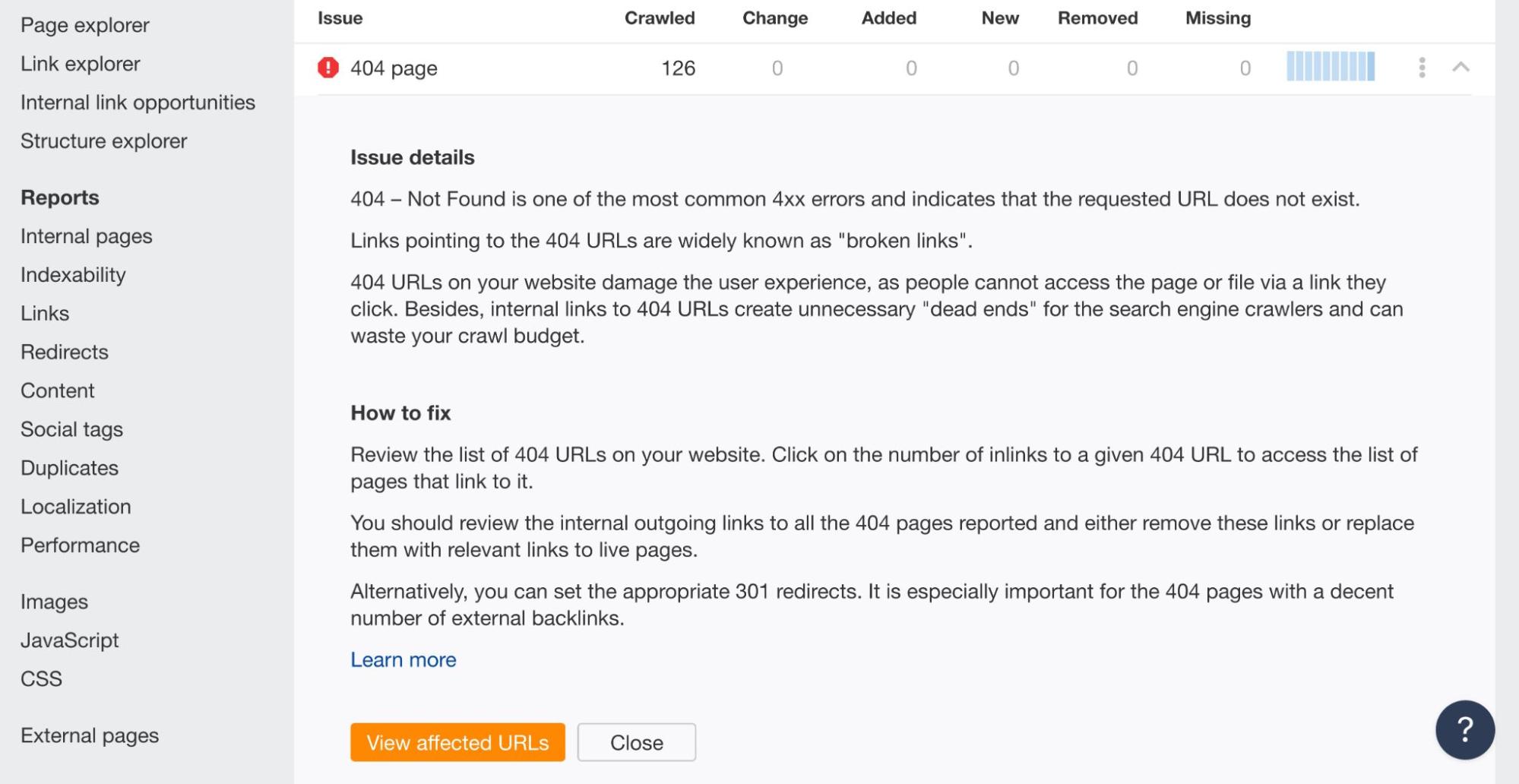
From there, you can click “View affected URLs” and go to those pages to fix the issues. Easy peasy.
Final thoughts
Overall, Wix is a perfectly capable website builder for SEO. While it isn’t as advanced and capable as more complex CMSs like WordPress, it’s plenty good for people who just want to build a website and don’t have the time for or interest in a giant learning curve.
I still use Wix for certain client sites and to build sites for friends and family who want a website where they can still make small edits themselves. It’s my favorite website builder compared to other tools like Squarespace or WordPress.com (not to be confused with WordPress.org, which I use all the time).
One more benefit to using a website builder like Wix is that it’s a complete solution and takes care of the hosting and security. In fact, John doesn’t recommend self-hosting your websites.
That said, if you want more advanced features and to dive deeper in SEO, I suggest learning WordPress.
Ready to keep learning? Here are some other helpful guides:
Content Copyrights Belong to The Author. All Rights Reserved.
We're A Dallas Digital Marketing Agency That is Experts At Social Media Marketing, Website Design and Emarketing and Promotion.

